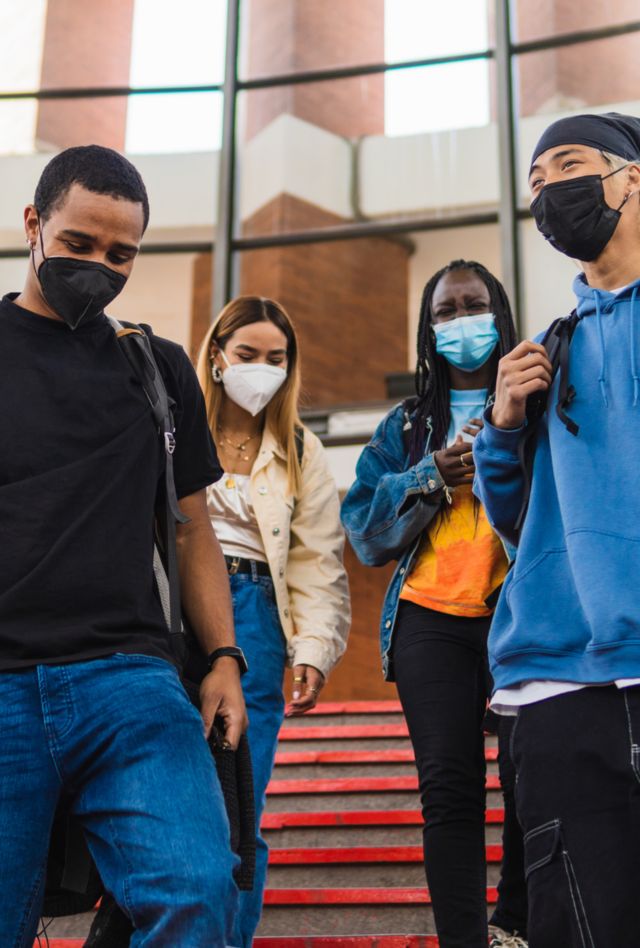Network-Driven COVID-19 Prevention (RADx-UP)

Problem
The COVID-19 pandemic has impacted some communities more than others.
While the COVID-19 pandemic affected everyone, some communities experienced disproportionate consequences. Two key populations with high COVID-19 transmission rates are individuals who had interactions with law enforcement (e.g., a history of arrest, jail, prison, or probation/parole), and low-income Hispanic/Latinx communities. Throughout the pandemic, it has been difficult to engage these populations in prevention behaviors such as testing and vaccination due to challenges including stigma, a sense of futility, resource challenges, and concerns about how personal information may be shared and used.
Solution
Empowering trusted messengers within communities.
NORC partnered with the University of Chicago School of Medicine to conduct randomized control trials testing the effectiveness of network-driven approaches to prevention. These approaches assume that the messenger is often as or more important than the message itself and seek to leverage voices within communities and interpersonal networks to promote COVID-19 prevention behaviors.
The first phase of the study engaged participants in a social network strategy, where participants were prompted to recruit others in their social network to engage in COVID-19 prevention behaviors. This phase also included messaging to correct common misinformation about COVID-19 prevention. A second phase of the study built upon the social network strategy by training participants to be peer change agents, with training on how to educate and motivate others around COVID-19 prevention and protection behaviors.
Result
Reaching participants through social networks.
The first phase of the project reached almost 1,400 participants with messages about COVID-19 prevention. Of these, 29 percent were directly recruited to participate in the study and the other 71 percent were recruited as part of participants’ social networks.
The second phase of the project enrolled 778 participants in education and training to peer change agents for COVID-19 prevention. Results indicate that enrolled participants increased informational sharing about COVID-19 prevention with their networks.
Related Tags
Project Leads
-
Michelle Johns
Senior Research ScientistProject Director - Phase 2 -
Sarah Hodge
Research ScientistSenior Staff








